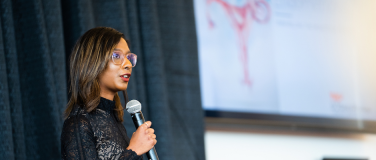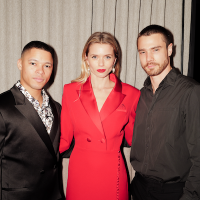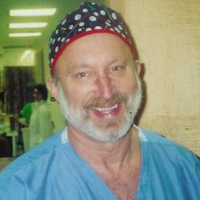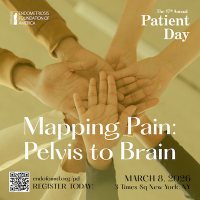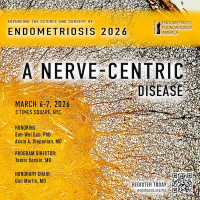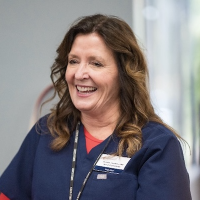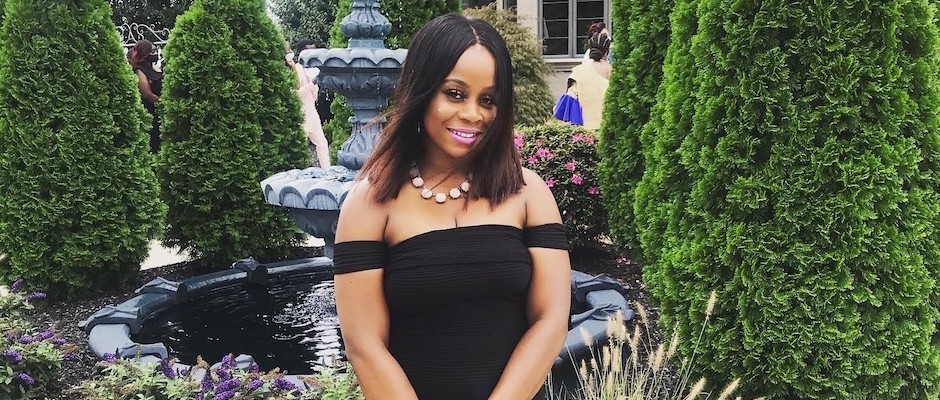
My endometriosis story is one that I believe is unique. All women have different walks of life and different stories, and mine, too, is different. My endometriosis story starts with uterine fibroids.
I have always had heavy periods. I started my menstrual cycle at the age of 10, and my periods were not easy. They were always really heavy, painful, and lasted for 7-10 days. I grew up in an African household where women’s pain is always normalized. I grew up thinking that this was happening to me just because I was a girl. I would be discouraged from playing outside, or even interacting with friends when my cycle was on. I would bleed through heavy overnight pads and would often double up on regular pads if I did not have an overnight pad available.
I became severely anemic at the age of 12—my hemoglobin was at a 2. My doctors told me the normal range was 12-16. I remember they looked at me as if shocked that I was functioning with hemoglobin that low. Prior to knowing I had anemia, each time I showered I’d be so weak afterwards. Like, crawling on the floor weak. I would breathe heavily and just lay on the bed in my towel until I could muster the strength to get ready. This was normal for me, and one day my mom noticed and took me to see a doctor. When my doctors diagnosed me as anemic, they gave us a handful of options, and the birth control option seemed plausible (it would make my periods lighter and shorter). I began taking birth control pills at age 12 for this reason.
Over the years, my period did get shorter and lighter, and I continued to take birth control to prevent pregnancy as I became sexually active in my teens. I took my birth control religiously and never missed a dose.
I also remember getting the depo shot in my freshman year of college in 2007. I had convinced myself that I needed this intervention as I would be too busy and did not want to forget to take my pill. When I got the shot I had very negative side effects: I bled throughout the three months I was on it. I never went back for another dose as it did not seem like a good option for me. I went back on birth control pills.
I can remember still complaining about how heavy my periods were with my college roommate around 2009, and she told me that her mother had fibroids and had to have a hysterectomy. At that time, I was 19. I thought, this can’t be my issue as no one has ever brought it to my attention. I was not informed by any medical professionals, so I thought nothing of it. I continued to normalize my pain as I also had other friends who hated their periods just as much as I did so I figured it was normal to be in that much pain during your period.
In 2010, I remember having this sensation to always urinate and I did not think it was normal. If I pulled in my belly button I could urinate on command. I went into the doctor to see what the issue was. First they gave me a pregnancy test, negative. Then they asked if I had a yeast infection and I said no. That was checked and they confirmed that I did not have a yeast infection. Then they asked if I had a UTI and I said no. That was also checked and confirmed that I did not have a UTI. But since they could not find anything, the doctor sent me home with antibiotics to treat a UTI anyway. He said that I didn’t display any symptoms but I should go ahead and take the antibiotics. In my heart of hearts, I think this was the moment I started to develop fibroids but it continued to go undiagnosed.
I continued to keep up with annual pap smears that sometimes would come back abnormal, but my doctors told me my body would get rid of it on its own.
Fast forward to 2015: I was 25-26 and had gotten really good at masking my pain and symptoms. I just thought this was normal because none of my doctors ever thought something else was causing my pain. During this time I changed doctors and met with a physician who actually listened to my symptoms. She told me that it sounded like I had fibroids but that she could not diagnose me as my primary provider; she would need to refer me to an OB/GYN. Once I was referred and had my tests done, it was confirmed that I had six fibroids in my uterus that were the size of peaches. They then told me that I was young and had time to make a decision, but that there were procedures to preserve my uterus including a surgical procedure to remove these fibroids.
No one had informed me about fibroids. I educated myself and found that fibroids could be contributed to diet and weight, so I began my holistic journey. Surgery was not an option for me at this time, and I knew that I wanted to try to shrink these suckers on my own and possibly get rid of them myself. For many years, I watched what I ate and exercised rigorously. I continued to keep up with my annual pap smears but the fibroids continued existing comfortably within me and did not shift in size at all. I was still determined to get rid of them myself and continued my health journey. At one of my appointments with my primary, she told me that if she didn’t know I had uterine fibroids, she would've thought I was pregnant because of how much she could feel in my uterus. For years, I carried this pain.
Sometime during this process, I became more bloated and more uncomfortable. I would have so much gas that I could not walk upright. I would walk hunched over and stay home from work for two days. I would plan everything around my period and make sure my family and friends knew that I could not partake in any events until two days after my cycle, when symptoms were relieved. I would be constipated and every time I was at the gym and would get on the treadmill, I would have cramping and diarrhea. I went to my OB/GYN to let her know this was happening to me and she told me that what I described were not symptoms of fibroids and that it was in my head and sometimes when we think of things it translates to our bodies. She did refer me to a rectum doctor who examined me and confirmed what she said. So I felt that maybe the pain was in my head.
In 2021, there was a night where I cooked a nice dinner and was getting ready to indulge. I began to have sharp pains in my abdomen that shot down my legs. It caused me to feel nauseous and not want to eat. That was the moment I decided to take control of my health and stop letting the doctors tell me what I was feeling. I knew that it was not normal and I was tired of masking and normalizing pain.
That Monday morning I called my network and got a new OB/GYN. I was honest with them about how I felt and that I wanted my pain to be taken seriously. They agreed and performed tests.I was diagnosed with endometriosis in September, 2021. My doctor actually confirmed that I had no fibroids in my uterus and that what I had was endo in my uterus (the scar tissue was that thick). At this point I had been in a serious relationship for about three years and had not gotten pregnant. I just assumed it was due to fibroids, but my doctor told me then that the cause was endo. They wanted to see if endo had closed my tubes, because even from imagining, they could see how much endo there really was. My doctor validated my pain and was in shock that I was handling this much pain based on what they could see. They ran more tests and my tubes were not closed. I decided to have surgery. My surgery date was on 11/12/2021.
I can tell you now that I feel a world of difference. Because I want to have kids, my doctor could not remove all the fibroids or endometriosis but they did their best to preserve my uterus. They also removed a six-inch fibroid that was pushing down on my rectum: the reason for my constipation that previous doctors had told me was in my head.
Ruby is a 32-year-old first generation Liberian American. She has struggled with painful and heavy periods since she was ten, and was only very recently diagnosed with endometriosis—just three months ago. Prior to this diagnosis she was told all of her pain was attributed to uterine fibroids. Three months ago, she found out she had both endometriosis and fibroids and that the endometriosis was at risk of closing her tubes. She underwent a robotic-assisted laparoscopic myomectomy a few weeks ago, and now she is inspired more than ever to share her story to assist other women to get answers about their pain. Now that she has gotten surgery, she plans on having children, and she remains hopeful that the endometriosis will not be a barrier any longer.
Editor's note: Would you like to contribute to EndoStories? Click here to learn how to submit your work.
*Patient stories submitted to EndoFound.org are the views of the patient and not necessarily those of the foundation. All testimonials are from real patients, and may not reflect the typical patient’s experience, and are not intended to represent or guarantee that anyone will achieve the same or similar results.




